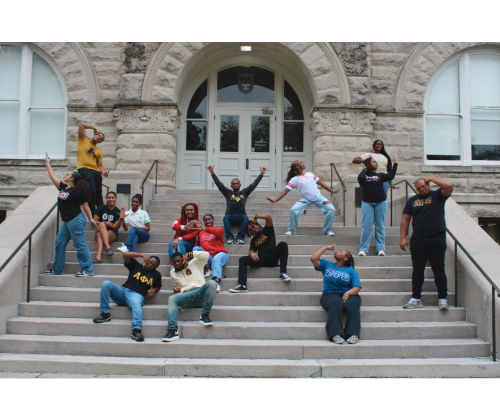
The Tulane National Pan-Hellenic Council (NPHC) serves as the coordinating body of all affiliate organizations that are members of the "Divine Nine". While these organizations were historically founded as Black Greek Letter Organizations, membership is open to individuals of all racial and ethnic backgrounds.
The role of the NPHC is to promote higher standards of scholarship, a greater degree of culture, closer social fellowship, and a stronger interpreter spirit among the affiliate members; to coordinate activities to benefit member organizations; to stimulate affiliate organizations to foster and sponsor projects which encourage educational, moral and cultural progress of the campus and community; to serve as a forum for the consideration of issues of mutual interest to affiliate organizations; and to educate the Tulane University population about NPHC and its member organizations.
Member Organizations Constitution and By-Laws Membership Intake Info
Officers
- Nia Martin, President
- Evan Mattox, Vice President
- Jancy Suber, Secretary
- Cecile Taylor, Public Relations Chair

Purpose of NPHC Plots
Over the years, NPHC organizations have developed plots on college campuses and treated them as sacred grounds. The largest of the symbols of NPHC fraternalism on college campuses is the plot. A plot symbolically represents the organizations and appears in various forms. On Tulane’s campus, the plots is one unified stone structure that represents the power of Unity within NPHC, with cutouts for each of the nine organizations featuring the founding date, chartering date, mission, and official shield. For campuses with plots, especially Historically Black Colleges & Universities, the plots play a central role in the culture of NPHC fraternities and sororities as a meeting location. At Tulane, the NPHC Plots are designed to honor the legacy of the National Pan-Hellenic Council (NPHC) and its nine member organizations and celebrate the strides we've made toward fostering a more welcoming and supportive environment for all. These plots represent more than just physical space; they symbolize our commitment to NPHC members and the legacy of nearly 50 years.
